Introduction
In today's digital age, a strong foundation in computing is essential for students to thrive. The SABIS® Computing curriculum is designed to equip students with the knowledge and skills needed to navigate and excel in the world of technology. From the foundational stages to pre-university levels, our curriculum emphasizes critical thinking, problem-solving, and ethical use of technology.
Books of the Computing Curriculum
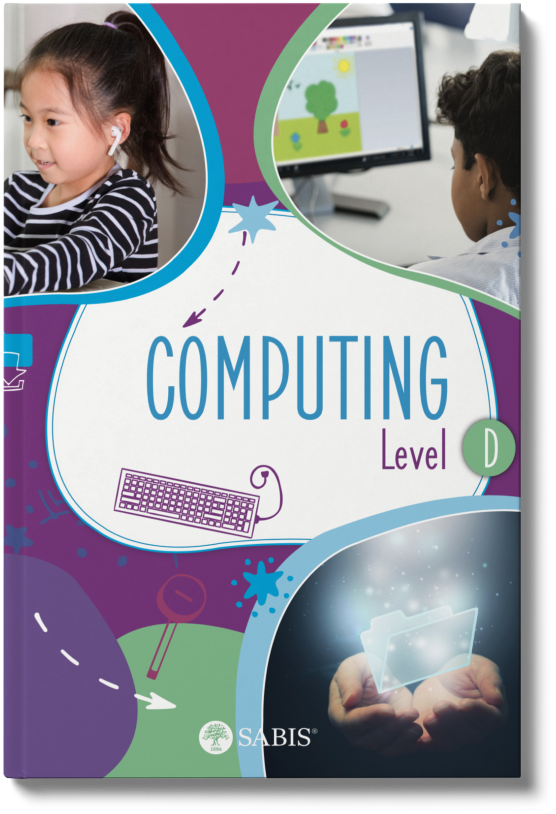 Computing Level D
Computing Level D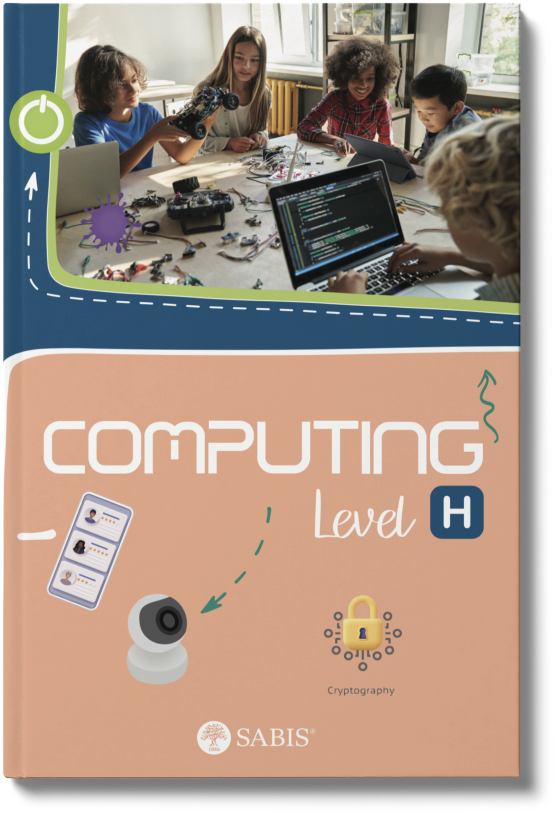 Computing Level H
Computing Level H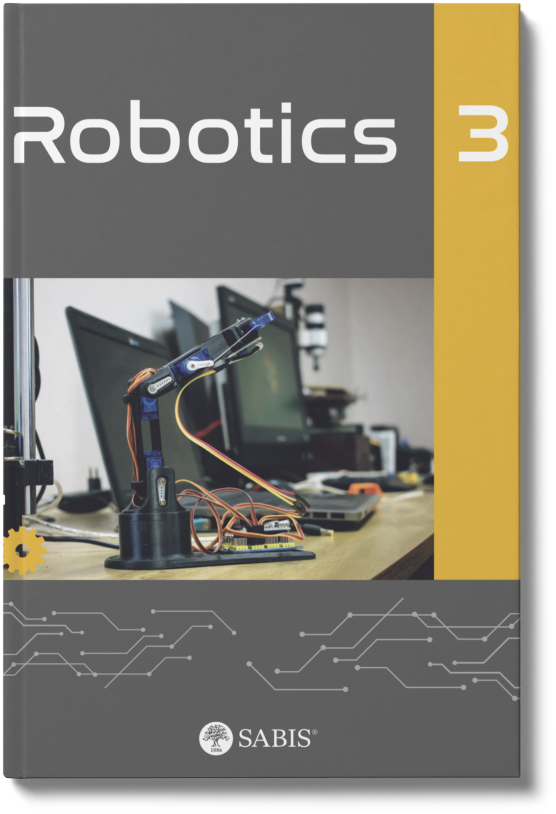 Robotics 3
Robotics 3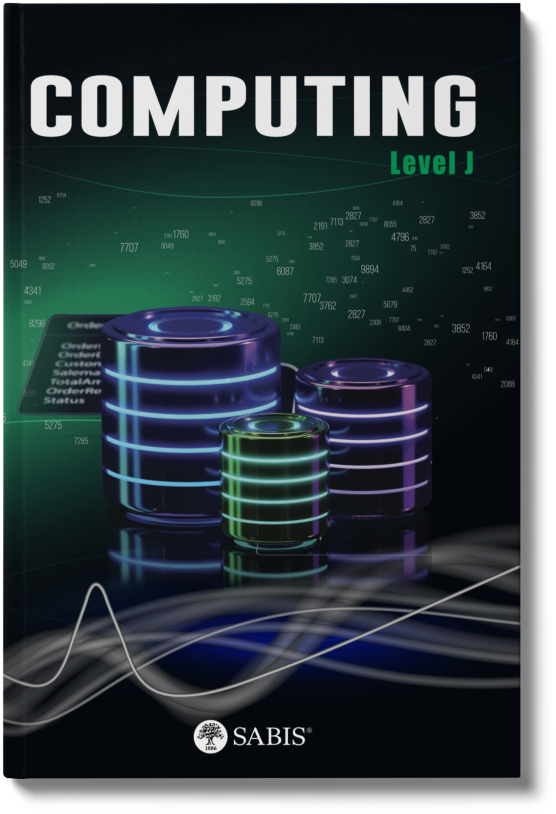 Computing Level J
Computing Level J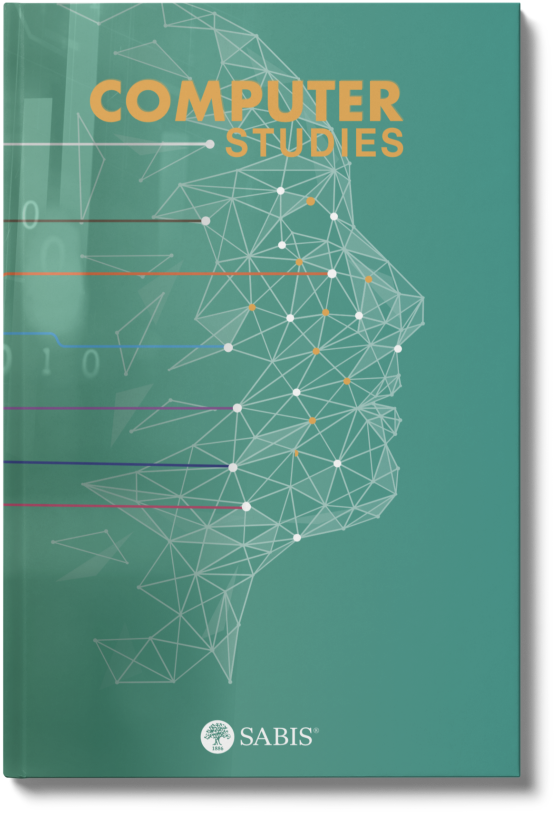 Computing Computer Studies
Computing Computer Studies Elements of the Computing Curriculum
Foundational Stage (Grades 1-2)
This stage is the "foundation" stage where the very basic introduction to computing occurs. In the foundation phase, students will have the first encounter with the computer and its parts, use simple applications, and understand the basic ethical rules for handling technology tools. Students will observe, name, know, and distinguish the various external hardware parts and their uses. The emphasis is on using the mouse and the keyboard with the help of simple typing and drawing software.
The main software functions provide interactive exercises that enable students to handle the mouse and keyboard, use simple graphical drawing and painting software, and, finally, use a word processor to get introduced to dealing with the keyboard's main features, such as keying letters and numbers, erasing, and switching the case of a text.
The internet and online safety are also introduced in the foundation phase. Simple definitions and real-life examples are given with a focus on online safety and the precautions needed before using the internet.
Finally, problem solving is introduced at this level range; students will learn how to define a problem, distinguish different solutions, and adopt the best solution to a problem with a focus on using computers for problem solving.
Basic Skills Stage (Grades 3-6)
At this stage, students will wrap up the knowledge from previous years, and based on what they know, they are expected to classify computer parts and know about the major internal structure of the computer. The wider range of skills within this phase will include information manipulation, organization, and presentation. Students will use spreadsheets, organizers, electronic presentations, and reports to collect, manipulate, organize, and present information related to various issues of concern. Advanced topics related to word processing, spreadsheets, and presentations are mastered at this phase.
Game programming and block programming are also introduced in this level range. Students will learn how to create terrains and add objects and programmable characters. At the end of this stage, students will master using variables, IF statements, and loops in block programming.
Social media and networks, ethical and responsible use of the internet, emails, and online safety are covered intensively in these levels. Students will learn how to browse the internet, download material, send and receive emails, and apply safety measures when using the internet.
At the end of this phase, students will be introduced to different computer science topics such as artificial intelligence, robotics, cryptography, mobile applications, virtual and augmented realities, and 3D printing.
Production Stage (Grades 7-8)
At this stage, students have already acquired basic knowledge and skills of essential software applications, and they are ready to use what they know to innovate and produce new ideas. Students in the production phase will transform ideas and concepts into finished products using several advanced features of previously learned and newly acquired skills. The emphasis in this phase will be on programming using a high-level language, multimedia manipulation using applications in image processing, database design and implementation, audio-video editing, animations, cybersecurity, computer networking, software engineering, web programming, and data analysis. These levels focus on programming to enforce critical thinking and problem-solving skills essential to the next stage-the pre-university stage.
Pre-Uni Stage (High School)
This is the pre-university stage. At this stage, students fulfill a pre-university program that allows them to acquire the necessary skills and knowledge at a freshman level. The material covered is oriented towards excellence in passing superior examination curricula, such as the AP® exam.
The books for Grades 10-12 cover advance topics in computer science. The material includes practical disciplines, such as programming in Python® and web programming using HTML5, CSS3, and JavaScript®. Object-oriented programming (using Python® and Java®) and problem-solving techniques are also mastered at these levels, in addition to cybersecurity, computer network topologies and protocols, and data. Moreover, some chapters also cover essential computer science topics, such as data mining, cloud computing, and computer architecture.






